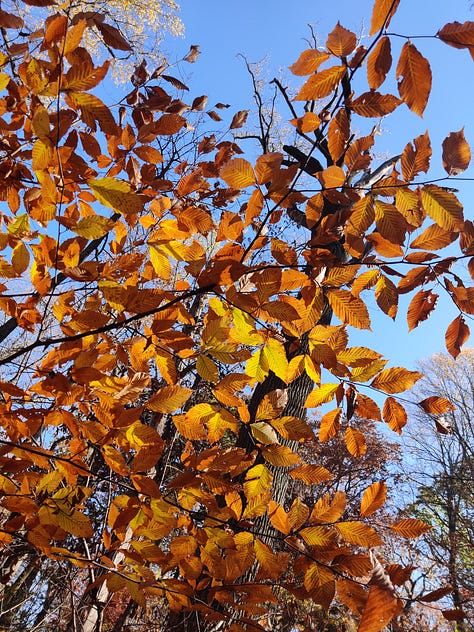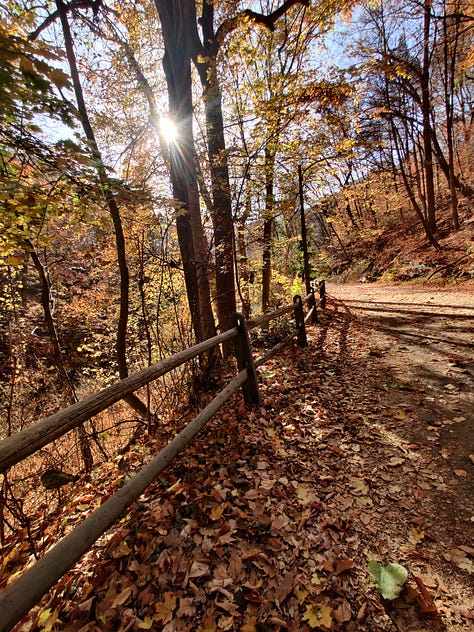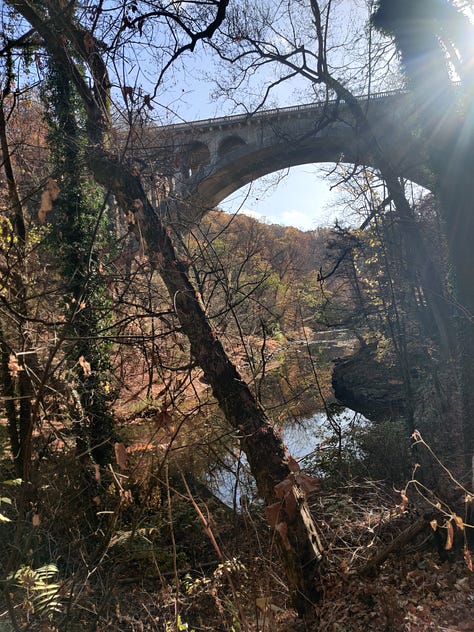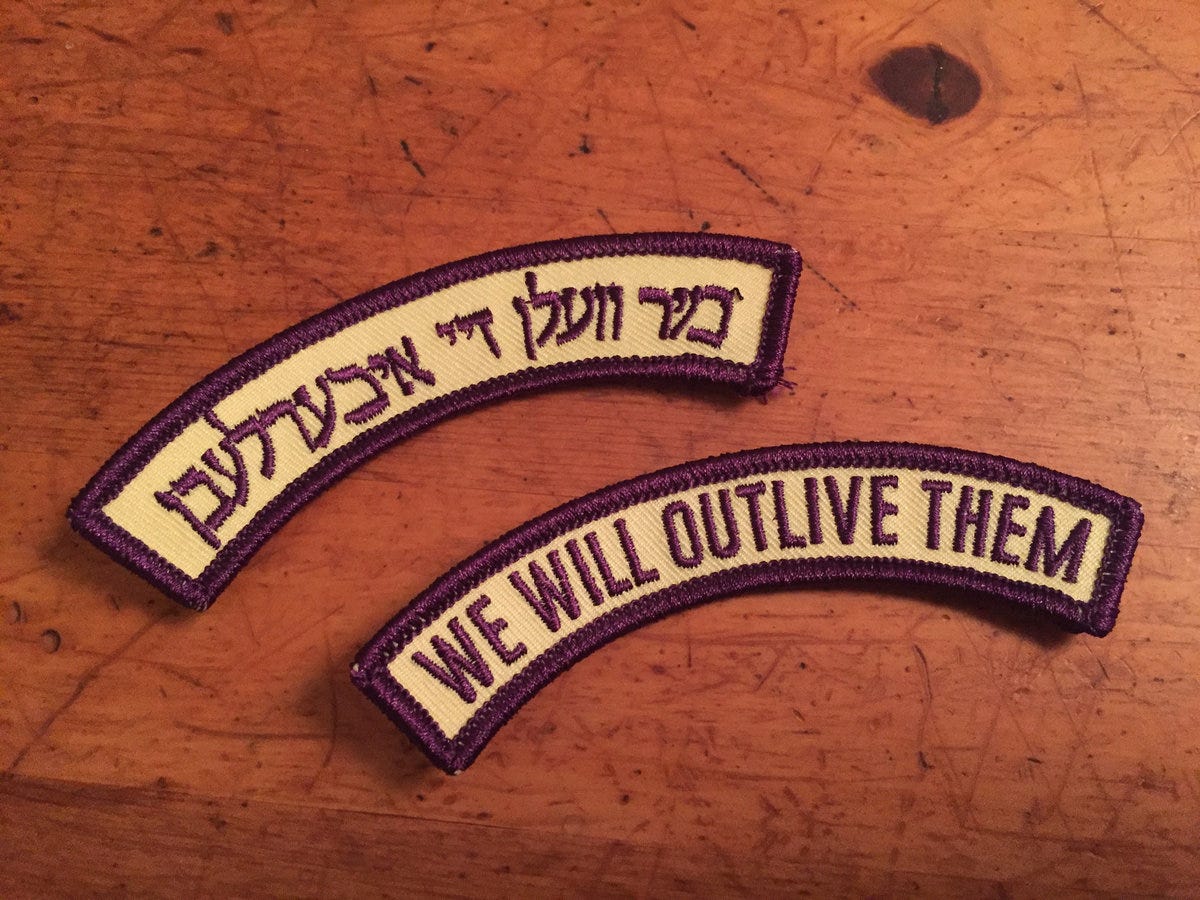To be honest, I didn’t feel great about the last week’s post. I felt it was too critical. Too often when we are hurt in some way we snap to judge others, and while the Democratic party absolutely deserved the ire, in the end I’m not sure the endless criticisms were as helpful. There is a reason I am more interested in antifascism than fascism. I am always looking for ways to be inspired, and while criticism is certainly crucial, it is equally important to imagine ways of moving forward— with grace, and with dignity. The battle will be long and so our own collective and political sustainability will be that much more important.
In the first week after the election, I couldn’t bear to read think pieces, especially ones that barraged the reader with statistics. They felt cynical and dry. I found myself more pulled toward the authentically emotional ones, especially by women-identified writers, whose takes reflected their own personal experiences more than a declamatory stance (like my last post, for instance— yikes, sorry).
I especially liked Haley Nahman’s What else is there? from the Substack Maybe Baby. Nahman used to write for Man Repeller, and when the fashion blog world imploded she became a full-time Writer with a capital W, much more culture than fashion. (She’s also a comrade!) I read her posts more religiously than any other these days. She reminded me that one of the most surefire ways of sustaining one’s health, sanity, etc, is returning to the body, to tenderness, and to collectivity. I found myself pulled very strongly to many of the same activities she discusses.
In an attempt to heal and care rather than wound and criticize, and inspired by Nahman, here are a few things that I think could be done, a reminder that we do have some small control over some small things: ourselves. Some things— the Democratic party, the tides of history, the machinations of the universe— feel too big to change even when they demonstrably fail. Collectively, we have so much power. Individually, we seem to have so little. What, then, to do, with your one wild and precious life, as Mary Oliver would put it?
Join an organization that aligns with your ideals, and find the place where your skills, privilege, and/or positioning can best contribute.
I joined DSA in early 2017, right before the last Trump inauguration. I was a part of the “Trump bump,” and saw the org grow from a few thousand members to almost 100,000 in the span of a few short years, especially after the “AOC bump” the subsequent summer. The numbers more or less stabilized since then, with the original organizers often getting burned out. Caucuses formed, allegiances splintered, but things carried on. It always seems to be revolutionizing itself, as any healthy org. I took a break from DSA after the national convention in summer 2021 and only returned for canvasses and a few general meetings since then, but recently applied to become my chapter’s Harassment and Grievance Officer (HGO). It’s not a done deal yet, but I’m excited to apply the skills I’ve learned in my academic and creative work towards fomenting community and encouraging the health of the organization that has been my political home for the past 8 years.
It does seem like there is a resurgence of interest in socialism after the election. A DSA post-election discussion event resulted in a huge, unprecedented crowd of 200 people— we ran out of chairs! It was thrilling to see so many new faces, and also see so many members I have known for years.
I know DSA isn’t exactly for everyone. Of socialist orgs in the US, I believe it is the biggest and the most effective (the fact that we have openly socialist politicians gaining seats in federal, state, and city legislature at all is because of DSA’s strides in electoral work in the last 8 years). In Philly, it supplies marshals and police liaisons to marches/protests through Red Rabbits, and the Housing Group was largely responsible for helping tenants at Brith Shalom unionize and win against their slumlord; their building was then purchased by the Philadelphia Housing Authority, and their status as affordable senior housing was preserved. They provided strike support for a historic Aramark strike for much of this last month. DSA isn’t perfect, but I often tell friends that if there is something they want to see in DSA, all they have to do is get involved and do it. There are many ways of getting plugged in. That’s the great thing about it being democratic, but completely uninvolved with the Democratic Party!
There isn’t just DSA, though. People help to the best of their abilities. One good friend of mine feels very strongly about bike safety, and is super involved with bike activism across Philadelphia. They’re an artist by trade, so they make flyers and puppets for protests, marches, and rallies. Another runs a running group that also spreads awareness about Palestine, and brings people together who may not be able to be as free about their anti-Zionism in their workplaces. Another friend uses their privilege as tenured faculty to help students threatened with expulsion over Palestine organizing.
It might sound strange, but doing meaningful political work that aligns with your skills and values is often the best possible thing you can do for your mental health, especially given the American epidemic of loneliness, now officially codified by the US surgeon general since 2023. And no, I do not think online activism is helpful (especially given the loss of privacy on the internet). The beautiful thing about organizing is that it is inherently interpersonal (and offline!).
Keep your side of the street clean.
This is a phrase from twelve step programs like AA and Al-Anon (for families/friends of addicts/alcoholics), and I find that it works for pretty much every facet of life. There are many useful slogans commonly used in Al-Anon— keep things simple, progress not perfection, pause, etc (it is largely a program for people-pleasers and domineering perfectionists)— but core to a lot of the tenets is the idea that one has to work on oneself rather than simply trying to “fix” others/the world. In fact doing one’s own work is a prerequisite. They are inextricable: you cannot effectively do one without the other. For me, and probably for many folks, keeping my side of the street clean means acting with dignity and thoughtfulness to the best of my abilities (I fuck up sometimes, as we all do), trying not to speak ill of others (I am a natural gossip and I am working! on! it!), and trying to make amends when I do screw up. Fundamentally it’s all about taking accountability while also recognizing that we can’t possibly be perfect, and that growth is a lifelong process. Many people are helped by therapy; many by twelve-step programs; many by meditation, yoga, or spiritual practices. Many of my friends do all or most of these. This might feel “individualistic” compared with #1, but I promise that the more you are able to act with dignity and kindness toward both yourself and the world, the more effective your work in the world will be. It’s honestly pretty magical.
Exercise your innate ability to find peace and joy.



The day after the election, I woke up earlier than usual and immediately checked my phone. After the inevitable (although not surprising) horror, I felt a strong drive to go towards nature. It was just early enough where I could grab the pup, drive to the Wissahickon, and return with just enough time to eat breakfast, shower, and head to campus for a noon faculty meeting.
It was just what the doctor ordered (if my doctor paid attention to mental and physical well-being as much as test results…). I find nature very regulating. I realized during the pandemic that if I didn’t retreat to the woods at least once a month, I would start feeling the effects in my mind and body. It was so helpful to remember that even when things feel like the end of the world, that it might be the rapidly accelerating end of one thing (global capital? American empire? A false, Francis Fukuyama-esque sense that we are in the “best of times”?), and the beginning of another. We will find ways of persevering.
I have been thinking a lot about the Yiddish phrase Mir veln zey iberlebn, which means “we will outlive them.” The phrase, as this article explains, derives from a Hasidic man who was singing a prayer as he was walking towards his own execution, changing the lyrics. The crowd began singing and dancing, even while the Nazis attacked and killed them. It’s a bleak story, but it was inspiring, and after the queer NY-based Klezmer band Tsibele made patches with the phrase in Yiddish and in English, it took off and became a rallying cry amongst anti-Zionist Jewish organizers in the late 2010s.
I think about it as a reminder that he was right. Many people died, but we outlived them, and will continue to— “we” here referring less to Jews specifically than leftists, the good people, the good Samaritans, the helpers.
I was reminded of this Yiddish phrase when reading social worker and storyteller Jessica Dore’s post for this week, which recalled the concept of “dangerous memory.” For Dore, recalling Elisabeth Schüssler Fiorenza and Grace Jantzen, a dangerous memory isn’t necessarily traumatic. It is even necessary. Dore writes:
Dangerous memories are not only hard ones. They also include the ten thousand tendernesses which amount to a knowledge of miracles. To a living relationship with grace, which is when gorgeous things happen that had no business happening.
Dangerous memories include moments of being listened to so well you start thawing. Encounters with art works and stories that scaffold the chaos. Of witness which takes an account so precise that [sic] gravity’s called into question.
These are also dangerous, iconoclastic memories. Surpluses of softness blasting out from a landscape that wants to be callous. They don’t belong, they don’t fit in, they shouldn’t be allowed. And they often occur on stolen-back, reclaimed time. Between shifts, up early, washing down bites of lunch.
Does it seem strange to think about tenderness and a kind of psychological thawing the moment when it appears to so many people that the end of the world-as-we-know-it is nigh? When so many claim that we need to put our combat boots on and steel ourselves for decades of struggle, of authoritarian governments and climate apocalypse? I’d argue that now is precisely when it is made all the more necessary.






